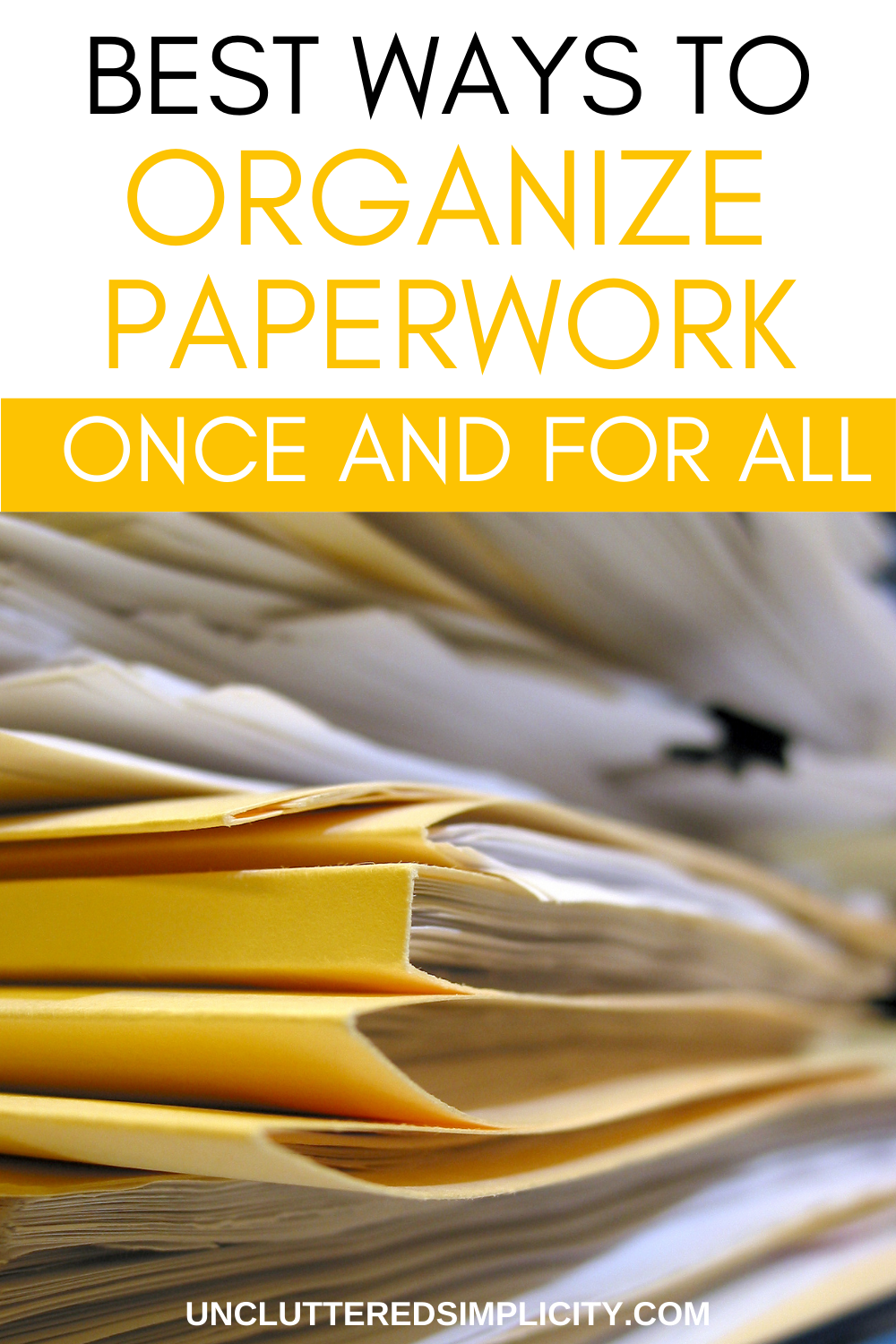7 Proven Ways to Organize Your Paperwork

In today’s digital era, the transition to paperless systems has been significantly on the rise, yet many aspects of our lives still rely on traditional paperwork. From tax documents to personal records, effectively organizing physical documents can save time, reduce clutter, and ensure important papers are readily accessible. Here are 7 proven ways to organize your paperwork, tailored to help you maintain order and efficiency.
The Importance of Paperwork Organization

Before diving into the methods, it’s essential to understand why organizing your paperwork is critical:
- Reduced Stress: A clutter-free environment leads to a clutter-free mind, reducing anxiety and making information retrieval easier.
- Financial Security: Proper organization can help you quickly locate financial documents for tax filings or emergency situations.
- Legal Compliance: Some documents require retention for legal reasons. Organizing them ensures you meet these obligations.
1. Categorize Your Documents


Start by sorting your paperwork into distinct categories. Here are some common categories to consider:
- Personal Information: ID documents, birth certificates, passports.
- Financial Documents: Bank statements, tax returns, investment records.
- Healthcare: Medical bills, insurance policies, health records.
- Home-related: Mortgage, home insurance, warranties.
- Work: Contracts, performance reviews, benefits information.
💡 Note: Consider using color-coded folders or labels to quickly identify categories.
2. Adopt the F.I.L.O. Method

The First In, Last Out (F.I.L.O.) approach ensures the oldest documents are at the back of the file, making newer items more accessible:
- Sort documents by date.
- Place the oldest at the back of the folder.
- New documents go in front, creating a chronological flow.
📚 Note: This method is particularly useful for financial and time-sensitive documents.
3. Use the 5-Minute Rule

Every time you handle a piece of paper, decide its fate within 5 minutes:
- File it: If it needs to be kept for future reference.
- Act on it: If it requires immediate action.
- Trash it: If it’s not needed or can be easily found online.
4. Digitize Where Possible

Scanning and digitizing your documents can significantly reduce physical clutter:
- Choose a reliable scanner or use a smartphone app for quick scans.
- Use cloud storage solutions to back up these files, ensuring they are accessible from anywhere.
- Tag or index your digital files for easier retrieval.
🌐 Note: Ensure you have a robust backup strategy for your digital archives.
5. Implement a Weekly Paperwork Ritual

Set aside time each week to:
- Go through incoming mail.
- Sort documents into appropriate categories.
- Act on or file away new paperwork.
- Shred or recycle unnecessary documents.
6. Use a Physical System for Important Papers

Not all documents can or should be digitized:
- Utilize fireproof safes or secure storage boxes for originals.
- Keep a master list of what’s in these storage systems.
🔐 Note: Originals like birth certificates, titles, or legal documents often need to be kept in their physical form.
7. Employ the Two-Trash-Can Rule

To keep your space clean:
- Have one trash can for regular waste.
- Another for shredded confidential documents.
This practice helps maintain confidentiality and minimizes clutter.
By implementing these 7 proven methods for organizing paperwork, you can significantly reduce stress, enhance efficiency, and protect important documents. As we increasingly move towards digital solutions, keeping physical documents organized remains a critical skill, ensuring you’re not just managing clutter but also safeguarding essential information for your financial and legal well-being.
Why should I digitize my documents?

+
Digitizing documents reduces physical clutter, makes storage and retrieval easier, and provides an extra layer of security through backups.
What documents should I keep in paper form?

+
Legal documents like property deeds, birth certificates, and passports should be kept in their original form due to their legal validity.
How often should I go through my paperwork?

+
Setting a weekly routine helps to manage new paperwork, but a thorough review should be conducted annually or bi-annually.